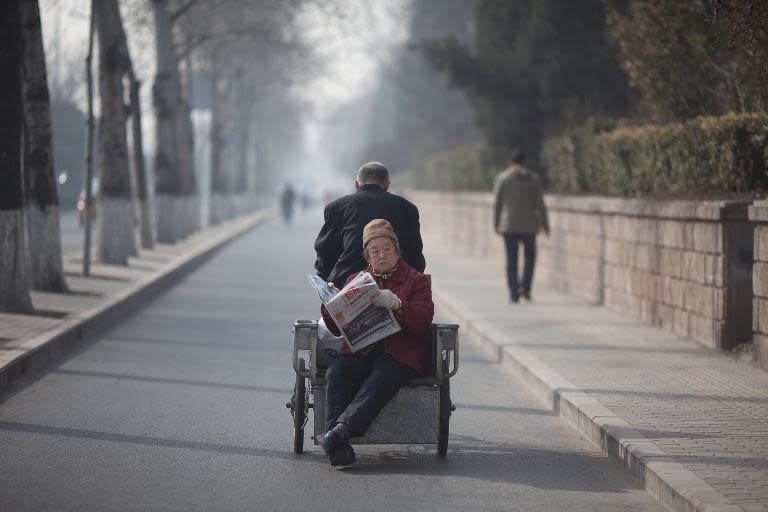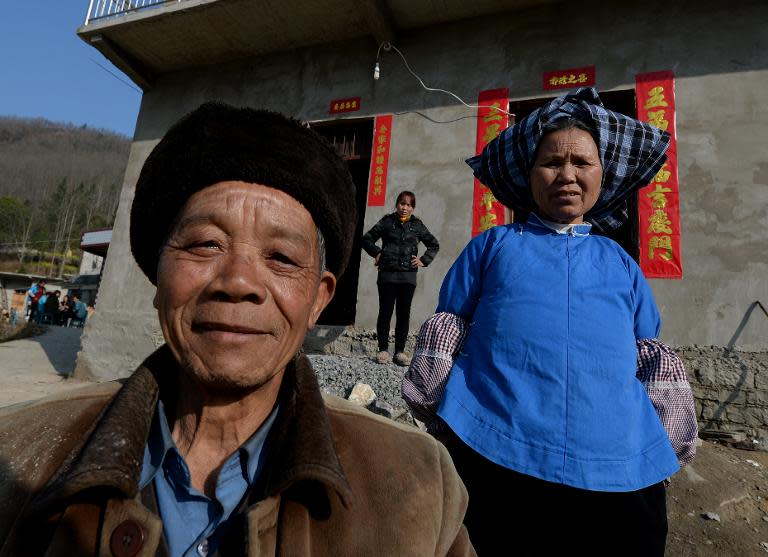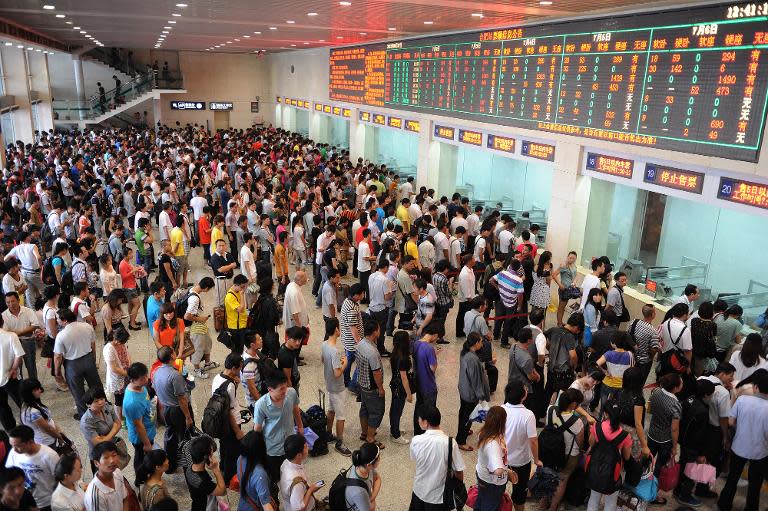100 million Chinese to get greater city benefits
More than 100 million Chinese are to be given vital documents making them officially residents of the country's cities under a broad plan for the urbanisation that is crucial to economic growth. China's new leaders under President Xi Jinping who took office a year ago have touted "people-centred urbanisation" to raise the quality of life as well as just growth rates. The "national plan for a new model of urbanisation" calls for measurable improvements such as extended social benefits, improved air quality -- an issue that causes widespread public anger -- and expanded public transport. But analysts warned Monday that while the overarching strategy and the inclusion of specific targets were positive, the real question was whether the plan would be put into action. The plan aims for 60 percent of China's 1.36 billion people to live in cities by 2020 and for 45 percent to have the vital urban residency registration, or "hukou", that gives them equal access to social benefits such as education and health care. This would compare with 52.6 percent and 35.3 percent as of 2012. The stated goals include "work hard to achieve 100 million rural workers and other permanent residents obtaining urban hukou". The change would narrow the proportion of urban residents who lack urban hukous -- a move which analysts say is crucial in improving living standards for migrants from the countryside, hundreds of millions of whom have moved to the cities in recent decades. Chinese citizens are tied to a specific location -- normally their birthplace or that of their parents -- by the hukou system. It gives them rights to subsidised services there such as medical insurance, or land use in the case of rural residents, which migrants cannot access elsewhere. "Urbanisation is a powerful engine for maintaining the sustainable healthy development of the economy," the plan said. Rural Chinese, "by becoming urban residents will enjoy better public services, causing the urban consumer pool to continue to expand", it said, calling domestic demand "a fundamental driver of China's economic development". Experts said implementation was the key issue. The targets "are important from the point of view that they are solid numbers so that they try to hit them", said Tom Miller, the Beijing-based author of "China's Urban Billion". The proportion of city residents who lack urban hukou has been rising and he told AFP: "These aren't radical numbers but they are trying to reverse the direction it's been moving in." But Miller warned that "the devil is in the details". University of Washington professor Kam Wing Chan praised the plan as "rather comprehensive" and "focused much more on the human aspect", as opposed to previous plans "which were mainly about construction". He called the firm target for hukou reform a "significant commitment toward achieving genuine urbanisation". But he added: "The real test of the effectiveness of the plan is when the plan gets implemented at the local level. Will the goals be followed or not?" Among numerous targets aimed at improving livelihoods, the plan called for 99 percent of migrant children to receive nine years' education, and 95 percent of rural labourers and others struggling to find work to receive free basic job training. At least 23 percent of city residents would enjoy affordable housing -- a pressing problem amid soaring property prices -- double the rate in 2012. At least 90 percent of the elderly would receive basic old-age insurance, up from 66.9 percent in 2012. The plan also outlined measures to add infrastructure and improve environmental standards. Sixty percent of motorised transport would be provided by public operators in cities which have more than one million residents, up from 45 percent in 2012, it said. Half of new construction would have to be "green", up from two percent in 2012. Meanwhile 60 percent of cities should meet national air quality standards, up from 40.9 percent in 2010. The official news agency Xinhua stressed authorities' commitment, saying the plan "will provide strategic and fundamental guidance for the healthy development of urbanisation across the country". China's leaders have repeatedly pledged to retool the country's growth model to one driven by consumer demand rather than investment. But the plan said urbanisation will "bring huge investment demand for city infrastructure, facilities for public services and housing construction, which will provide continuing power for economic development".




